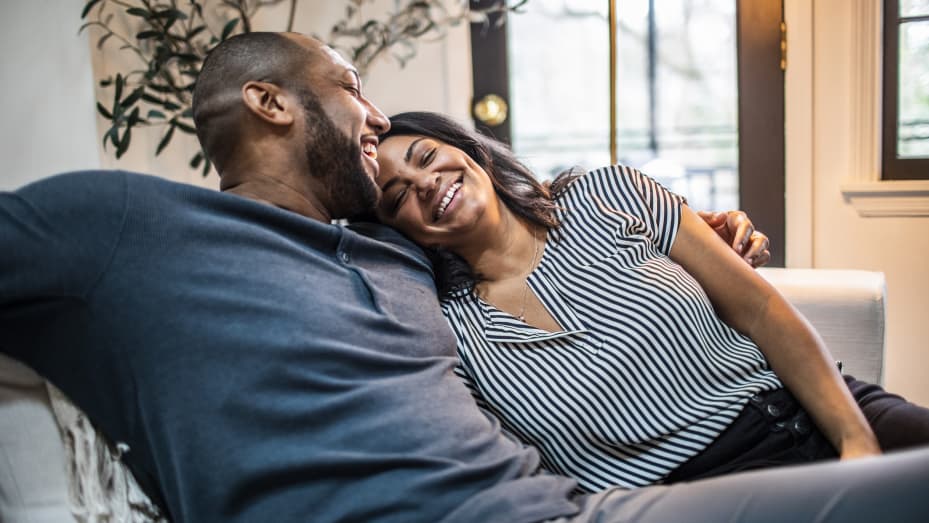
Americans are not feeling very confident about their money these days.
In fact, fewer than 1 in 3 adults in the U.S. say they are completely financially secure, according to a new Bankrate survey of more than 2,500 adults.
To feel comfortable or financially secure, Americans need a salary of roughly $233,000 a year on average, Bankrate found. That’s over three times the median U.S. household income of about $71,000 a year, according to Census Bureau data.
“We’ve known all along that cost of living and affordability challenges were plaguing Americans’ finances even before inflation surged,” says Sarah Foster, Bankrate’s principal U.S. economy reporter, who authored the survey.
The survey did not define financial comfort or security for respondents, but Foster says she’d describe it as “being able to cover your essentials as well as treat yourself every now and then.”
Although 1 in 3 Americans say low pay is the reason they don’t feel secure, other factors are adding to the anxiety. Here’s a look at what’s holding Americans back from financial security.
Why Americans don’t feel financially secure
The biggest contributors to Americans’ financial insecurities may be things outside of their control. Over 60% of respondents said high inflation was one of the reasons they didn’t feel comfortable financially.
Other factors include the economic environment, which 48% of survey respondents cited, and rising interest rates, cited by 36% of respondents.
Americans’ personal finances aren’t giving them much more comfort. Over 40% of consumers say insufficient emergency savings and retirement funds contribute to their financial insecurity.
That’s not too surprising, considering that nearly 40% of Americans wouldn’t be able to cover a $400 emergency with cash savings, according to the latest Federal Reserve survey. As for retirement savings, 60% of Americans say they don’t have a retirement-specific savings account, according to a recent NerdWallet survey.
The more money you make, the more you need to feel comfortable
Higher earners were more likely to say they currently feel financially secure, with 42% of those who earn $80,000 a year or more reporting complete financial security, compared with just 17% of those earning less than $40,000 a year and 27% of those earning between $40,000 and $79,999.
However, those higher earners were also more likely to name bigger numbers as the salaries they would need to feel comfortable. Though Americans on average say they’d need about $233,000 a year to feel comfortable, that number drops to $184,000 a year among those currently earning less than $50,000 and rises to $341,000 a year among those currently earning at least $100,000.
“We saw that the more money you make, the higher the income you would need to consider yourself both comfortable and rich,” Foster says. “You could be seeing a little bit of lifestyle inflation there, where when you earn more money, your standard of living adjusts along with it.”
However, those who earn $80,000 a year or more were just as likely as those earning less than $40,000 a year to say a lack of emergency savings makes them feel shaky, Bankrate found. Plus, the higher earners were a little more likely to say they’re concerned about their retirement savings.
Foster says it wasn’t surprising to see so many respondents say low pay is making them uncomfortable, but these findings show “even if you do make a really high salary, you could still be feeling financially insecure.”
Getting financial security means playing catch-up for some
Plenty of other factors, such as having children, can contribute to people feeling like they need a higher income to feel secure. Parents of children under 18 said they would need $247,000 a year to feel secure, compared with $236,000 among parents with adult children.
Additionally, historical inequalities may make some groups feel like they need to go above and beyond to feel comfortable. Black Americans, who face persistent income and wealth gaps, say they’d need to earn an average of $322,000 annually to feel secure, Bankrate found. That’s nearly $100,000 more than the average salary white Americans say would make them feel comfortable.
And women, who historically earn less than men, say they’d need a higher salary to feel secure — $237,000 on average among women, versus $229,000 among men.
“These long-running wealth gaps — the gender pay gap, the racial wealth gap — you’re seeing that take effect here where you’re facing disadvantages in the job market and even disadvantages at growing your wealth because none of us are on the same starting line,” Foster says.
“You ultimately end up needing even more to meet those financial goals on top of living comfortably and not worrying about money.”


